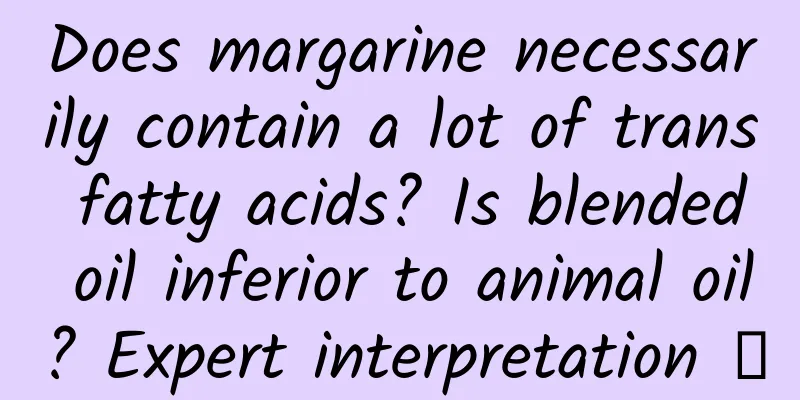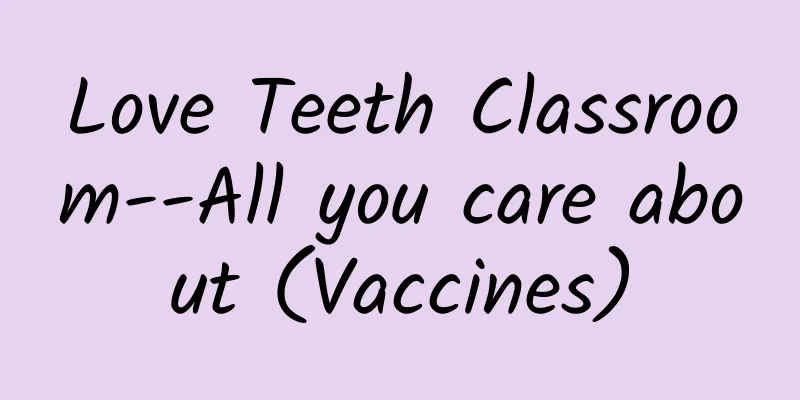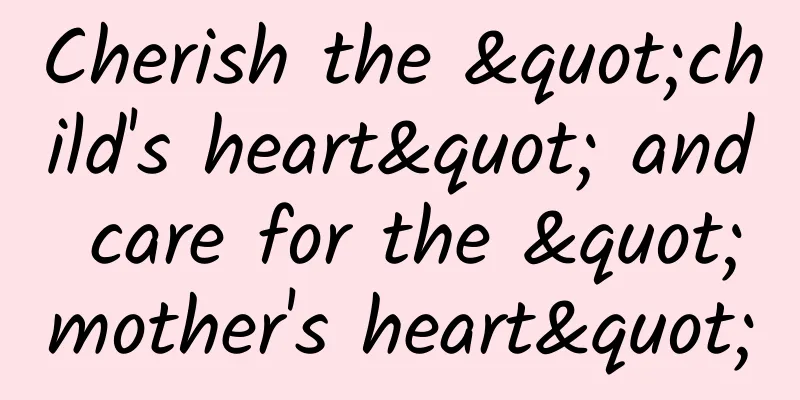Does margarine necessarily contain a lot of trans fatty acids? Is blended oil inferior to animal oil? Expert interpretation →

|
A healthy diet is the basis for ensuring health Healthy China Action (2019-2030) Encourage consumers to reduce salt, oil and sugar Recently, the Kexin Food and Health Information Exchange Center released a special survey result showing that consumers have 6 misunderstandings about fat ☟☟☟ Myth 1: Processed foods are high in fat and unhealthy The survey showed that nearly 70% of respondents believed that processed foods are high in fat and unhealthy. the truth Luo Yunbo, a professor at Beijing Technology and Business University, said: First of all, the fat content in food mainly depends on the food category and processing method. Not all processed foods are high in fat. Secondly, some processed foods also have requirements for fat content, and the fat content is not the only criterion for judging whether a food is healthy, and the fat consumed by Chinese people mainly comes from cooking oil. In addition, necessary and moderate food processing can enrich food supply and meet the needs of different consumption scenarios. As long as they are reasonably selected and matched, processed foods can also become part of a healthy diet. Myth 2: Hydrogenated vegetable oil (margarine) contains a large amount of trans fatty acids. The survey shows that 65% of the respondents are concerned about hydrogenated vegetable oils in the ingredient list and closely associate them with trans fatty acids, such as shortening, non-dairy creamer and other ingredients. The truth Chen Junshi, an academician of the Chinese Academy of Engineering, said: At present, a large amount of information about trans fatty acids on the Internet is confusing and obviously misleading, which has led Chinese consumers to overestimate the health risks of trans fatty acids. Technological innovations in recent years have brought good control over trans fatty acids in products such as hydrogenated vegetable oils and refined vegetable oils, and have also produced alternative products such as non-hydrogenated shortening. For example, coffee mate (non-dairy creamer) and cocoa butter substitutes can already achieve "0 trans fatty acids", and the trans fatty acid content in shortening, margarine and other products has also dropped significantly compared to the past. Source: Photo Network In fact, the trans fatty acid intake of Chinese people is far lower than the limit recommended by the World Health Organization and is significantly lower than the intake of Westerners, so there is no need to worry. Myth 3: Olive oil is the best vegetable oil The survey showed that 47% of respondents believed that olive oil was the best vegetable oil. The truth : Zhang Jian, a researcher at the Institute of Nutrition and Health of the Chinese Center for Disease Control and Prevention, said: The main nutritional feature of olive oil is its high oleic acid content, but oleic acid is not a fatty acid that is lacking in the diet of Chinese residents. Many vegetable oils contain a certain amount of oleic acid. In fact, whether it is soybean oil, peanut oil, rapeseed oil or olive oil, they are all edible vegetable oils rich in unsaturated fatty acids, and eating them in moderation is good for health. Myth 4: Blended oil is not as good as animal oil. The survey shows that 53.12% and 58.03% of the respondents have a positive impression of animal oil and vegetable oil respectively, while only 25.46% of the respondents have a positive impression of blended oil. Zhong Kai, director of the Truth Science and Technology Food and Health Information Exchange Center, said: Many Chinese people like to use animal oil to cook, and the special aroma of animal oil is often the "finishing touch" of vegetarian dishes. However, animal oil contains more saturated fatty acids, and the Chinese people's overall intake of saturated fatty acids is too much, so it is better to use vegetable oil for cooking and less animal oil. Vegetable blended oil is a mixture of vegetable oils. It is more suitable for cooking than animal oil. It is not essentially different from ordinary vegetable oils such as soybean oil, peanut oil, and rapeseed oil. Controlling the total amount is the most critical. Source: Photo Network Myth 5: Skim milk is healthier than whole milk The survey shows that one-third of respondents believe skimmed milk is healthier. the truth: Wang Jiaqi, Director of the Institute of Food and Nutrition Development of the Ministry of Agriculture and Rural Affairs, said: Although some international organizations and countries recommend drinking skimmed milk, this recommendation is related to the dietary structure and the intake of dairy products. my country's dietary guidelines recommend that ordinary adults consume 300 to 500 grams of milk and dairy products per day, but the actual intake is less than 1/10 of the recommended amount and only 1/15 of the actual average intake in European and American countries. Therefore, for Chinese people, the first issue is to increase the intake of milk and dairy products, rather than considering whether to skim them. Source: Photo Network Milk fat contains fat-soluble vitamins and can also bring a mellow taste, rich milk flavor and a certain sense of fullness. For ordinary people, skim milk is not healthier than whole milk, and consumers can choose the corresponding product according to their personal preferences. Only those who need to strictly control fat intake or those with hypercholesterolemia need to choose skim milk as appropriate. Myth 6: Nuts are rich in unsaturated fatty acids and should be eaten more The survey shows that 62% of respondents believe that nuts are good for health and should be eaten more. the truth: Ding Gangqiang, director of the Institute of Nutrition and Health at the Chinese Center for Disease Control and Prevention, said: Nuts are rich in unsaturated fatty acids, and eating them in moderation is good for health. The Dietary Guidelines for Chinese Residents (2022) recommends that the average adult eat 10 grams of nuts per day, which is about the same as a handful of melon seeds, a small handful of peanuts, or two or three walnuts. However, it should be noted that nuts have a high fat content, especially melon seeds and peanuts, which are easy to eat in excess as "TV drama snacks". It is recommended that everyone grasp the standard of "a handful" when eating nuts. Source: Xinhuanet, China Consumer News, China Consumer Network Editor: Zheng Ke Proofread by Li Jiahua Second trial丨Pan Ling Zhang Yue Final Review丨Liu Huiying Zhang Ruxian |
<<: Both are hot sellers! But don’t eat them together!
Recommend
How should patients with pelvic inflammatory disease pay attention to their diet?
Diet not only provides us with energy but also al...
Do you have any of these symptoms of premenopause?
Women will experience menopause when they reach a...
Symptoms of swollen fingers during menopause
There are many symptoms during menopause, which m...
Why does the fuchsia dry up as soon as the buds appear? Why doesn't the fuchsia dry up as soon as the buds appear?
Fuchsia is a common flower plant in life. Because...
Please take care of your kidneys! If you have these signs, it means your kidneys need a rest.
March 14 is World Kidney Day The kidney is one of...
Who are brown sugar eggs suitable for? What are the effects of brown sugar eggs?
We all know that brown sugar eggs are a popular h...
[Medical Q&A] When should I do a pre-pregnancy checkup? What precautions should I take before the checkup?
Planner: Chinese Medical Association Reviewer: Sh...
How much does a normal birth cost?
Choosing natural childbirth means that the mother...
A must-read for patients with ovarian cysts
The occurrence of ovarian cysts can cause a lot o...
Ovarian cyst pictures
Ovarian cysts are very common. Every ovum or egg ...
How effective is autumn weight loss for girls?
After bidding farewell to the scorching sun of su...
What are the reasons why women feel irritable?
No matter whether you are a man or a woman, an ad...
The reason why girls get fatter the more they exercise
We all know that people need to exercise. Exercis...
Why do women have vaginal odor?
Many female friends are prone to gynecological di...
Pregnant woman's blood test can tell the gender of the baby
During pregnancy, prenatal check-up is an indispe...









